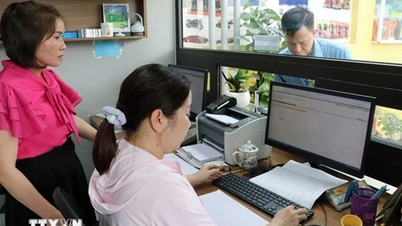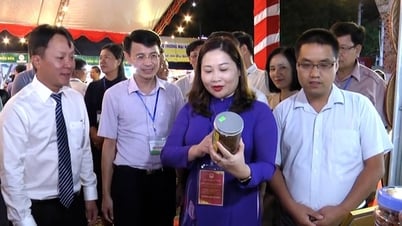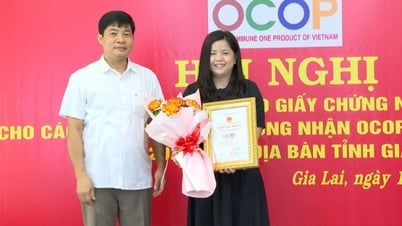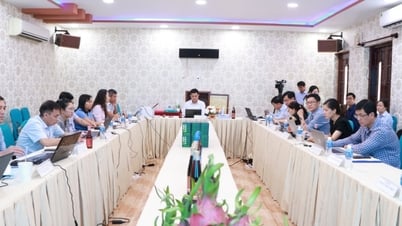WHO issues urgent call regarding cough syrups
When Mohammad Fajar (Indonesia) had symptoms of illness in late August 2022, Ms. Siti - a housewife mother did not worry much and went to buy cough syrup at a nearby pharmacy for the boy to drink. Like many people, Ms. Siti thought that her son was healthy enough to get rid of the symptoms of a cold with a bottle of cough syrup. However, 5-year-old Mohammad Fajar passed away on September 15, 2022. But the cold was not the cause of his death, but kidney failure caused his death.
Fajar is one of nearly 200 children who have died in Indonesia in 2022 from acute kidney injury. These cases are believed to have been caused by ingesting cough syrups suspected of being contaminated with chemicals used in antifreeze products. The deaths are believed to be linked to the use of syrups imported from India, specifically four syrups manufactured by Maiden Company, including Promethazine Oral Solution, Kofexmalin children's cough syrup, Makoff children's cough syrup and Magrip N cold syrup.
Not only Indonesia, but Gambia and Uzbekistan are countries that have recently recorded cases of children dying from using cough syrups like the above.
In mid-October 2022, Gambian police announced that preliminary investigation results showed that the deaths of 69 children due to acute kidney injury were related to 4 types of Indian cough syrup imported by Gambia through a pharmaceutical company in the US. The Gambian police report did not directly name the Indian pharmaceutical company, but still listed 4 products of this company, including the 4 types of syrup mentioned above.
Meanwhile, in late December 2022, Uzbekistan's Ministry of Health said at least 18 children in the country died after taking a syrup produced by Indian pharmaceutical company Marion Biotech Pvt Ltd. According to the ministry, 18 of 21 children with acute respiratory infections died after taking a syrup called Doc-1 Max. The medicine was sold on the manufacturer's website as a treatment for cold and flu symptoms. The syrup contained ethylene glycol, an active ingredient that Uzbekistan's Ministry of Health said was a toxic substance. The parents gave the medicine to the children at home without a doctor's prescription or pharmacist's advice, in doses that exceeded the recommended dosage for children.
After recording more than 300 deaths of children in many countries due to the use of cough syrups, the World Health Organization (WHO) on January 25 called on countries to urgently handle and eliminate substandard pharmaceuticals.
WHO said that over the past four months, it has received reports of cases involving over-the-counter cough syrups for children containing high levels of diethylene glycol (DEG) and ethylene glycol (EG). These are toxic chemicals used as industrial solvents and antifreezes that can cause death even in small amounts and should not be present in pharmaceuticals. Such cases have been detected in at least seven countries, with Gambia, Indonesia and Uzbekistan being the three countries that have reported deaths of young children from syrups containing these toxic chemicals. Most of the deaths were in children under the age of five.
WHO has issued global warnings about pharmaceutical products linked to such incidents since October last year, and has identified six pharmaceutical companies in India and Indonesia that produce cough syrups that pose a risk to children.
Protect your health from non-prescription drugs
After cases of children in other countries dying from using cough syrup - one of the products that is considered safe in reducing coughs in children - once again raised concerns about the use of non-prescription drugs in Vietnam today.
Directly related to the contaminated cough syrups, the representative of the Drug Administration of Vietnam, Ministry of Health said that through the results of checking the list of drugs imported into Vietnam, it shows that our country has not issued any registration numbers to Maiden Pharmaceuticals Ltd.; The Department has also not issued registration numbers for four cough syrup products: Promethazine Oral Solution, Kofexmalin Baby Cough Syrup, Makoff Baby Cough Syrup and Magrip N Cold Syrup. At the same time, Maiden Pharmaceuticals Ltd. also has no records submitted to the Drug Administration. This has somewhat reassured parents with young children that there are currently no such contaminated cough syrups on the Vietnamese market. However, from this incident, many people have expressed concerns about the use of cough syrup products in particular and non-prescription drugs in general today.
Over-the-counter drugs are drugs that can be sold directly to consumers without a doctor's prescription. Over-the-counter drugs are mainly used to treat conditions that do not require direct medical care or supervision, treating a variety of diseases and symptoms such as: pain, cough, cold, diarrhea, constipation, allergies, etc. Vitamins and supplements are also sold without a prescription. Consumers can easily find these drugs in drug stores.
There are many advantages to using non-prescription medications, including faster access to health care, fewer doctor visits, and lower costs than prescription medications. However, overuse of non-prescription medications can lead to side effects, overdose, and other medication-related problems. Therefore, users need to equip themselves with knowledge about safe medication use to avoid potential risks and promote responsible self-care for themselves and their loved ones.
One of the simple “skills” when buying and using non-prescription drugs is to check the expiration date, read carefully the ingredients, effects of the drug, etc. However, not all people have knowledge about the ingredients, as well as the effects and harms of drugs on health. Therefore, the problem is still the need to strengthen the management and supervision of pharmaceutical products to protect people's health.
According to WHO recommendations, pharmaceutical suppliers and distributors should regularly conduct checks to detect early signs of counterfeiting, as well as determine the quality of medicines and other medical products. WHO also emphasizes that only medicines licensed by competent authorities should be distributed or circulated on the market./.
Source link







![[Photo] President Luong Cuong talks on the phone with South Korean President Lee Jae Myung](https://vphoto.vietnam.vn/thumb/1200x675/vietnam/resource/IMAGE/2025/6/13/eee54a4c903f49bda277272b1dda68e8)




























































































Comment (0)